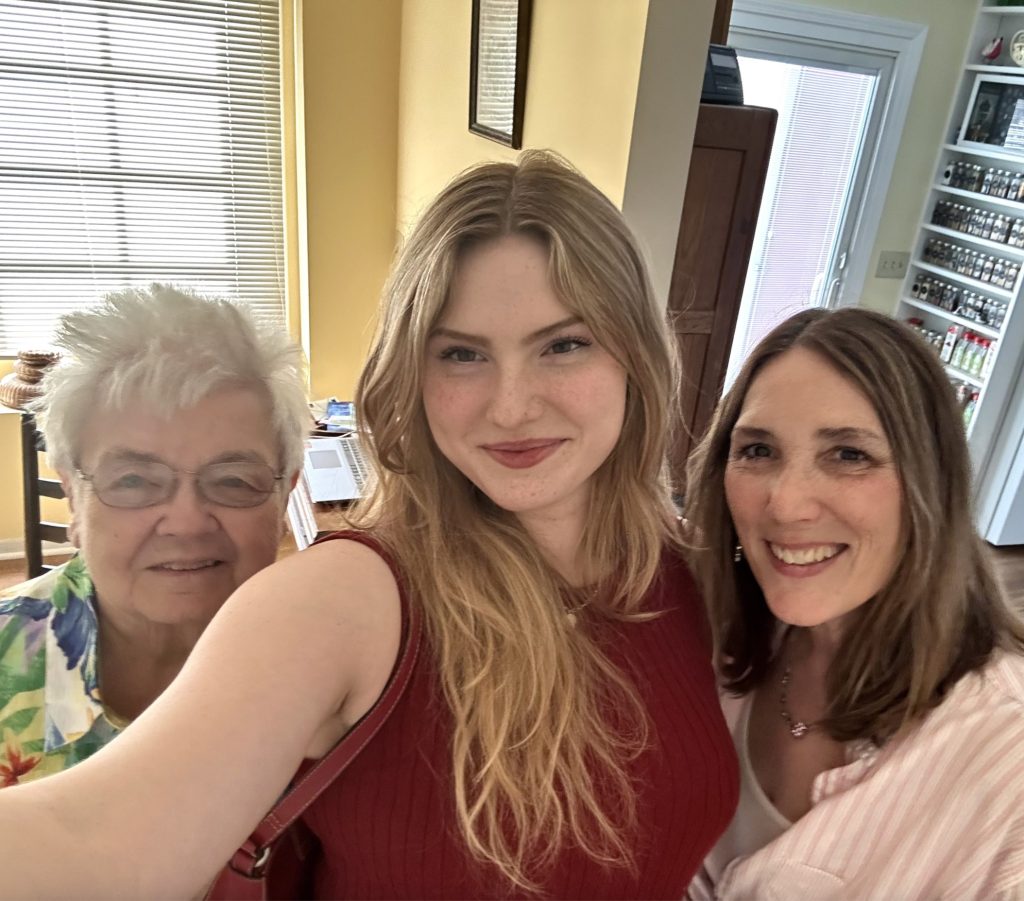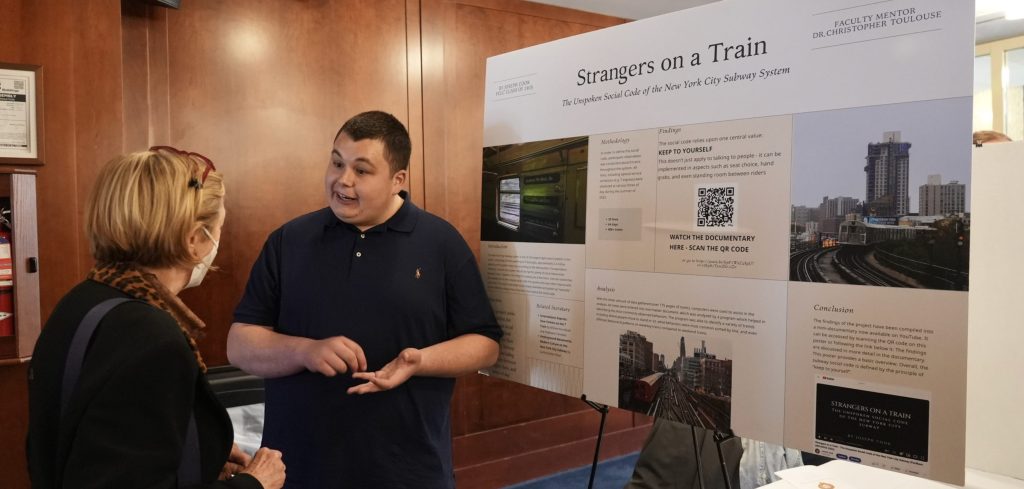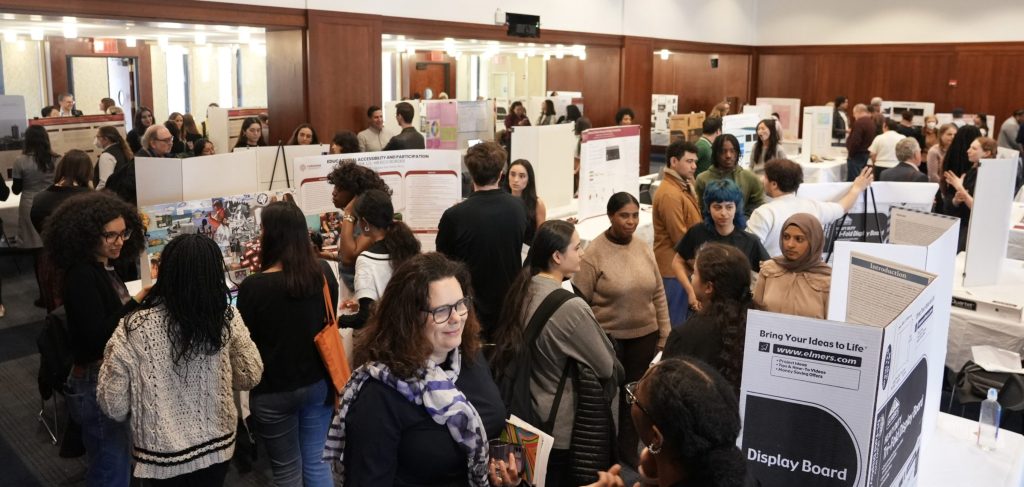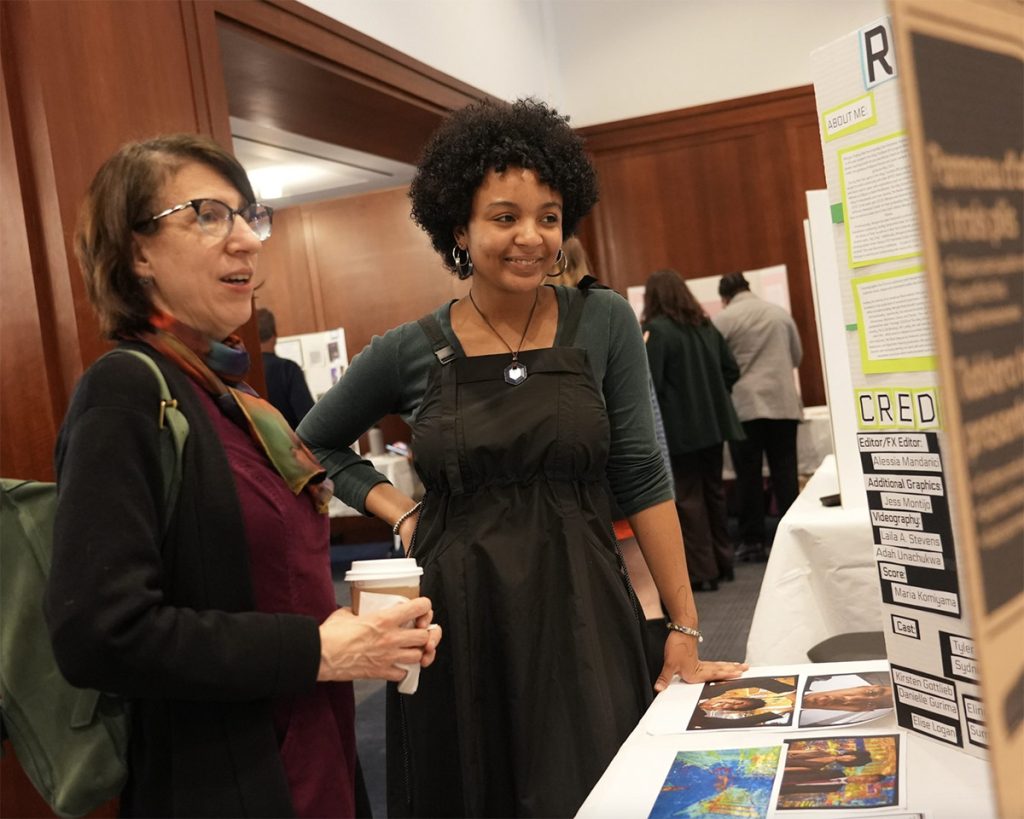Students present their research on the impact of the invasive spotted lanternfly on urban ecology. Photos by Taylor Ha
More than 40 students presented their research at ARS Nova, Fordham College at Lincoln Center’s annual arts and research showcase, on April 18.
Finding Her Biological Grandmother
Among them was Christine Irlbeck, a senior psychology major who wrote a 100-page memoir about her search to find her biological grandmother.

Irlbeck with her mother and adoptive grandmother: “[Adoption] led to my mother being able to have a stable and beautiful life with her adoptive family.”Irlbeck’s mother, an adoptee from Illinois, had never tracked down her biological mother. But Irlbeck had many questions.
“We’ve always dealt with these overhanging questions about what my mother’s family looks like. When people asked us about our family history at doctor’s appointments and family discussions, we didn’t know it. I also wanted to know whether my biological grandmother had dealt with a lot of life experiences that all of us had shared,” Irlbeck said, referring to the “grief” and “guilt” that can be associated with adoption.
Irlbeck eventually discovered that her biological grandmother passed away from COVID-19. But she plans to meet her mother’s other biological relatives in person for the first time later this spring.
“[This journey] gave me … a deeper appreciation for motherhood, in all senses of the word,” said Irlbeck, who interviewed her family and completed a literature review on different adoption processes as part of her research.
The Subway’s Social Code
Joseph Cook, a junior urban studies major, studied the social behavior of New York City subway passengers.
“I’ve been a train nerd my whole life, and I’ve also been taking a lot of sociology and anthropology classes here at Fordham, so I thought it would be a great idea to combine two of my passions,” said Cook.

Last summer, Cook rode 30 train lines and more than 400 trains, observing each route—from beginning to end—at every time of day. He used computer programs to analyze trends in behaviors, including where people chose to stand or sit, the most common behaviors on each line, and different behavioral patterns on weekday trains compared to weekend trains.
“Somewhat expected was the unspoken social code to keep to yourself. But it’s … not just not talking to other people. It’s where you stand, where you sit, where you grab onto the poles,” said Cook. “Another interesting finding is that post-COVID, the social code doesn’t specify responses to a lot of situations, so a lot of people are left doing nothing in a situation that could be potentially dangerous for other riders. I talk about this more in my documentary on YouTube.”
Cook said his research can help people stay safer on the subway.
“It can help people stick to that social code and keep themselves safe, and also helps us propose possible solutions, such as expanded cell coverage in the tunnels to record incidents that we can propose to the MTA,” said Cook, who aspires to become an urban planner.
‘Just an Artist’s Dream’
Morgan Gregory, a senior dance and African & African American studies double major, directed a documentary that reflects her Black identity as a person and an artist. The film portrays the stereotypes that exist within the Black narrative and the ways that the Black body can transcend these stereotypes and labels, said Gregory, adding that it complements her senior thesis on Afrofuturism.
“When I first started my research, it was very hard to find anything like what I produced. I think it’s important for work like this to be out there and talked about because everyone needs a voice,” Gregory said.
“Because I’m in New York, I have the option and opportunity to try out different things, put myself out there, and see what happens,” said Gregory, who aspires to become a professional dancer. “You know, just an artist’s dream.”
Learn more about each student and their research.



